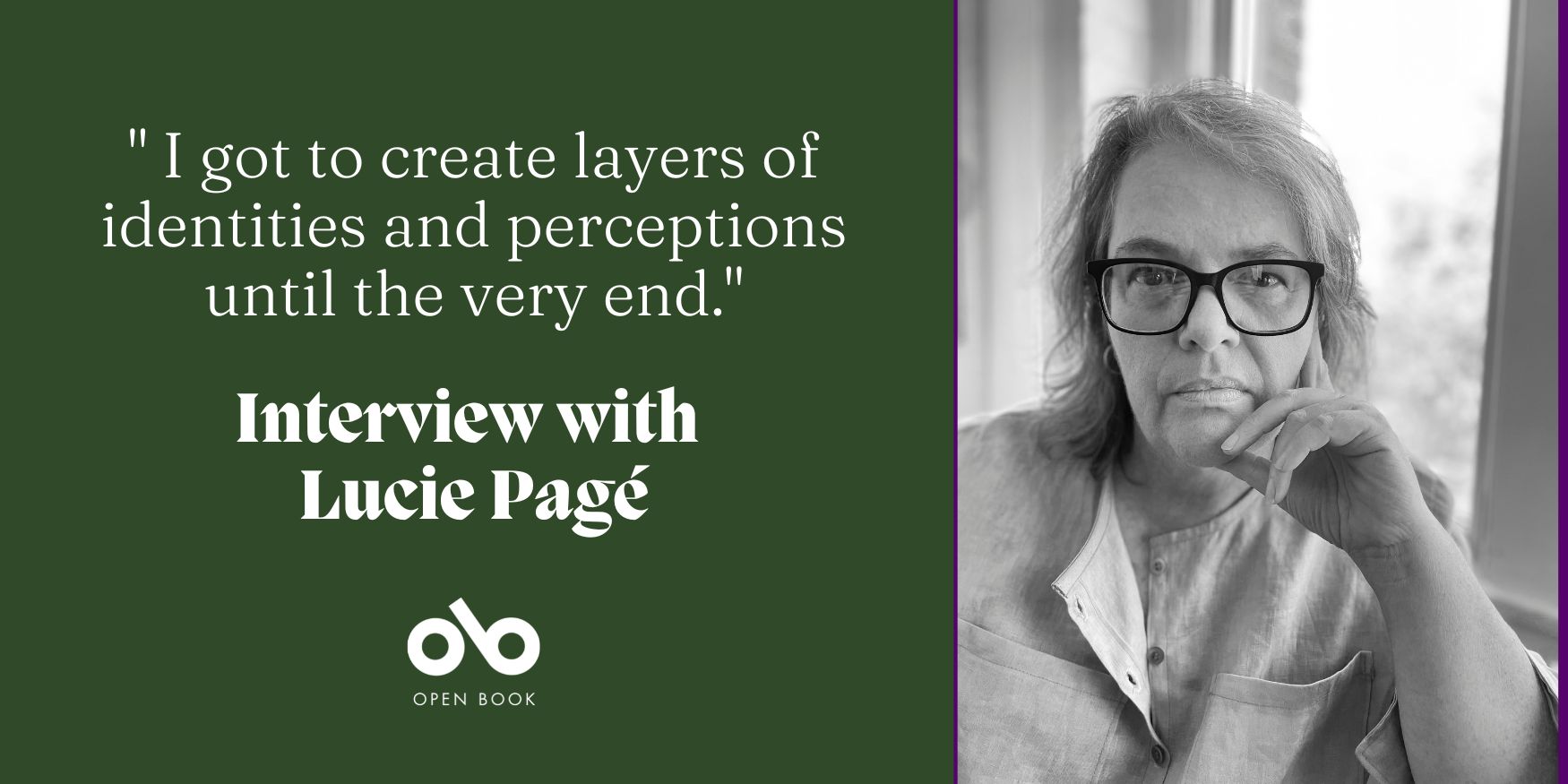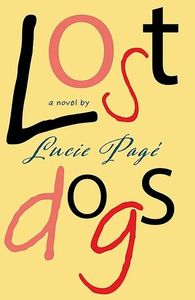Lucie Pagé on How She Found a Writing Community That Works for Her (and the One That Didn't Work)
The lost in Lucie Pagé's smart, aching, insightful new novel Lost Dogs (Cormorant Books) applies to much more than the missing pit bull whose disappearance kicks off a series of high impact events.
From distraught dog owner and English-prof-cum-aspiring-writer Brent and his actress girlfriend Katherine, to local teen Becca and her icy mother Caroline, the characters in Lost Dogs are in as much trouble as the canine at the heart of the story.
As Brent deals with Katherine's flat refusal to help in his search, Becca and Caroline's relationship is thrown into a crisis sparked by Brent's lost dog posters. The four of them, each dealing with their own inner demons, find themselves on an unexpected collision course with not only one another but with truths they have longed been avoiding.
Peeling back the binary of cold and explosive personalities, ambition, anxieties, and desire, Lost Dogs is a story about what all of us fear and long for. Pagé brings her acclaimed television writing experience to bear on the novel, creating a compulsively readable, character-driven tale.
She joins us today to talk about Lost Dogs, telling us about how she found her writing community (after a brief unintended detour involving stuffed animals and elf sex), her secret favourite character, and the surprising differences between her TV writing experience and writing her first novel.
Open Book:
Do you remember how your first started this novel or the very first bit of writing you did for it?
Lucie Pagé:
I’d been watching people falling out of touch with the world around them because they were gazing into their phones. They were wrapped up in posting what they thought other people expected to see. More often than not, they seemed lost and unhappy – especially when there wasn’t enough reaction or positive feedback. At the core of the experience – I thought – was a complete lack of meaningful exchange and communication. Something told me it could be a book.
I’d written a few short stories but I’d never attempted anything as ambitious as a novel so I joined a local writing circle. We were a group of around fifteen neophytes. At my first meeting, I noticed a few people set up good luck stuffies next to their teacups, notebooks and laptops. One writer announced she was channeling her story through her owl. Most of the group were interested in the fantasy genre. Before long, instead of writing, several attendees started vying for the affections of a dashing young playwright which of course, devolved into elaborate discussions of elf sex. I began to feel this wasn’t my tribe.
So when a friend committed to joining me for a regular writing night, I was thrilled. We sat in a coffee shop every Wednesday night for a year, for three hours a night and slowly but surely, a story emerged.
You can eat a lot of cheesecake in three hours. NOTE: I regret nothing.
Your CanLit News
Subscribe to Open Book’s newsletter to get local book events, literary content, writing tips, and more in your inbox
OB:
Did the ending of your novel change at all through your drafts? If so, how?
LP:
I have to write the entire story to know what it’s about and I rewrote Lost Dogs many, many, many times. Short answer: yes.
I knew I wanted one character to have a moment of clarity and real communication—a true connection to the world—but I honestly had no idea how I was going to achieve it, only that I would. I kept telling myself it would all work out and the ending eventually crystallized, thank goodness.
OB:
Did you find yourself having a "favourite" amongst your characters? If so, who was it and why?
LP:
It’s just like my mother always says: “I love all my characters equally.”
But... Katherine. My favourite character is Katherine. She always surprised me. I never knew what she was going to do.
I never knew what Katherine was going to want to do. She was a secret wrapped up in illusion with a subterfuge bow. A slow revelation burn. I got to create layers of identities and perceptions until the very end of the novel. I enjoyed exploring the fierceness with which she guards all her personal information while not letting anyone off the hook when they break one of her unknown rules.
In truth, I connect with all of my characters on some personal level. I was a terribly unhappy and unpopular teen, an over-thinking stage manager, and a not terribly successful English Lit essay writer. Little bits of myself are strewn everywhere in the story.
OB:
If you had to describe your book in one sentence, what would you say?
LP:
Thematically, it’s: When you don’t know where you want to go, figuring out how to get to your destination is bound to be problematic.
Plot-wise, Lost Dogs is the story of five people on a harrowing voyage of self-discovery.
OB:
Did you celebrate finishing your final draft or any other milestones during the writing process? If so, how?
LP:
I go for a long walk to shake off the doubt that inevitably starts creeping back in and then, I order pizza. I love pizza.
OB:
Who did you dedicate your novel to, and why?
LP:
When it was time to sit down and consider the people in my life who led me to believe that I could write a book, I could not just name one supportive person. Everyone’s encouragement over the years got me to the point where I typed “the end” on not only scripts and TV promos but now, a novel. From my Grade 10 English teacher, to my mother who gave me a gift of three months of rent-free living to write; to the myriad friends who have asked me what I’m working on with genuine interest... To my patient and brilliant husband who lets me discuss works in progress with him whether he’s in the middle of something or not. Were it not for all of them, supporting me morally, professionally, and emotionally, I would have quit at least three times.
OB:
What if, anything, did you learn from writing this novel?
LP:
I normally work in screenwriting. TV writing is a medium where everyone but you is in control of how the words land on the page. The script is a production blueprint which showrunners, agents, producers, broadcasters, and actors can revise. When I started Lost Dogs, I wanted to write something for me. I had imagined that fiction was different. That I would receive a few broad notes and then, that someone would skillfully add commas and point out a few words that needed replacing.
Wrong. Very, very wrong.
An entire story line was removed. Chapters I designated as ‘literary texture’ were annihilated. The lost dog no longer gets to tell his side of the story. All-caps and emojis were deleted. And at the end of the process, a real novel emerged.
_____________________________________________
Lucie Pagé is a French-Canadian author and screenwriter whose fiction has been published in Carte Blanche, Robot Butt, and This Magazine. Her story “Lawn Ornaments” won This Magazine’s Great Canadian Literary Hunt. Pagé is also an award-winning 2-D animator with an interest in sound design. She moved to Toronto to study theatre, but stayed for its rich cultural scene. In 2018, she was lured away to work on a Netflix series in Vancouver, BC for six months. She now divides her time between Toronto and Vancouver Island.






